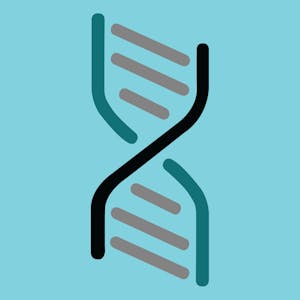Genomics Decoding the Universal Language of Life
What is a genome? A genome contains all of the information that a cell needs to develop, function, and reproduce itself, and all the information needed for those cells to come together to form a person, plant, or animal. Genomes contain an organism’s complete set of genes, and also the even tinier genetic structures that help regulate when and how those genes are used.The ability to regrow a torn ligament, the clues that might predict the onset of mental illness, the nutritional potential of crops, and even the history of life itself, are all encoded in genomes. By taking this course, you will discover how scientists are deciphering the language of genomes to learn how to develop sustainable food and fuel supplies, improve disease treatment and prevention, and protect our environment.
Professor Robinson is the main instructor for this course. In addition, each module features several guest instructors. These guest instructors come from diverse fields of study—biology, physics, computer science, and many others—and pursue diverse research goals, yet they share a common interest in genomic approaches and technologies. The guest instructors include:
- Elizabeth (Lisa) Ainsworth, Associate Professor of Plant Biology
- Mark Band, Director of the Functional Genomics Facility
- Alison Bell, Associate Professor of Animal Biology
- Jenny Drnevich, Functional Genomics Bioinformatics Specialist with High-Performance Biological Computing
- Christopher Fields, Associate Director of High-Performance Biological Computing
- Bruce Fouke, Director of the Roy J. Carver Biotechnology Center
- Glenn Fried, Director of the Carl R. Woese Institute for Genomic Biology Core Facilities
- Nigel Goldenfeld, Professor of Physics
- Brendan Harley, Assistant Professor of Chemical and Biomolecular Engineering
- Alvaro Hernandez, Director of the High-Throughput Sequencing and Genotyping Facility
- Victor Jongeneel, former NCSA Director of Bioinformatics and former Director of High-Performance Biological Computing
- Kingsley Boateng, Senior Research Specialist with the Carl R. Woese Institute for Genomic Biology Core Facilities
- Stephen Long, Professor of Plant Biology and Crop Sciences
- Ruby Mendenhall, Associate Professor of African American Studies
- William Metcalf, Professor of Microbiology
- Karen Sears, Assistant Professor of Animal Biology
- Saurabh Sinha, Associate Professor of Computer Science
- Lisa Stubbs, Professor of Cell and Developmental Biology
- Rachel Whitaker, Associate Professor of Microbiology
- Derek Wildman, Professor of Molecular and Integrative Physiology
- Peter Yau, Director of the Protein Sciences Facility
None
Syllabus
Syllabus - What you will learn from this course
Week 1
Course Orientation
What Is a Genome and Why Do We Care?
Week 2
What Were the First Genomes Like and How Do They Work Now?
Week 3
How Can We Use Genomes to Understand the Healthy Body and Fight Diseases?
Week 4
What Can Genomes Tell Us About How to Grow New Organs or New Crops?
Week 5
How Might Genomes Allow Us to Predict Health Problems Before They Occur?
Week 6
How Do the Genomes of Ecosystem Members Cooperate or Conflict?
FAQ
When will I have access to the lectures and assignments?
Access to lectures and assignments depends on your type of enrollment. If you take a course in audit mode, you will be able to see most course materials for free. To access graded assignments and to earn a Certificate, you will need to purchase the Certificate experience, during or after your audit. If you don't see the audit option:
The course may not offer an audit option. You can try a Free Trial instead, or apply for Financial Aid.
The course may offer 'Full Course, No Certificate' instead. This option lets you see all course materials, submit required assessments, and get a final grade. This also means that you will not be able to purchase a Certificate experience.
What will I get if I purchase the Certificate?
When you purchase a Certificate you get access to all course materials, including graded assignments. Upon completing the course, your electronic Certificate will be added to your Accomplishments page - from there, you can print your Certificate or add it to your LinkedIn profile. If you only want to read and view the course content, you can audit the course for free.
Is financial aid available?
Yes. In select learning programs, you can apply for financial aid or a scholarship if you can’t afford the enrollment fee. If fin aid or scholarship is available for your learning program selection, you’ll find a link to apply on the description page.
Reviews
Overall Good, But expected a little bit on application of coding, simple algorithms in the syllabus.
Very insightful course... highly experienced lecturers.
Hello, myself Mili Patel
I really enjoyed this course. All in this course satisfying and just want to say it's beyond my expectation.
Thank you.... 🙂
This is a very delightful course. i learned and enjoyed a lot while doing it. looking forward to more courses from illinoi.
